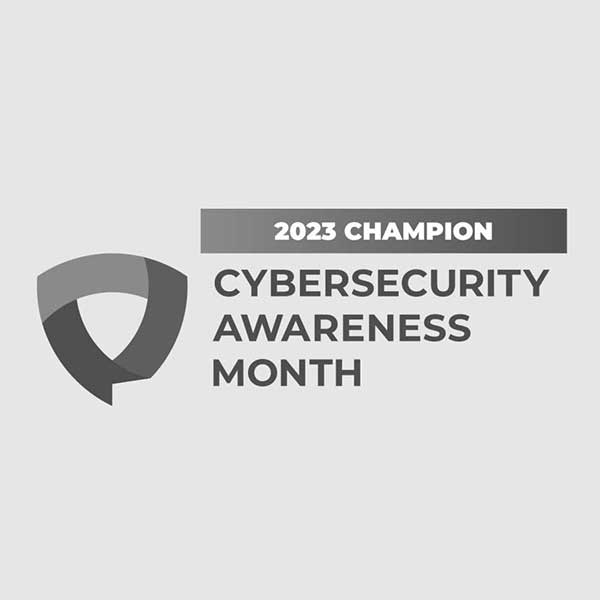Cybersecurity statistics indicate that electronic threats are significantly on the rise. Business email, data breaches, denial of service, and ransomware are the most common threats.1 One-third of US households have a computer infected with malicious software. Sixty-five percent of Americans who went online received at least one online scam offer. Consumers worldwide lose $384 and 21 hours of dealing with online crimes annually. In the US, 47% of adults have had their personal information exposed by cybercriminals. Every single day, cyber criminals hack 600,000 Facebook accounts.2
What are Cybersecurity Conferences?
Cybersecurity awareness takes place with training and presentations. Cybersecurity conferences, symposiums, colloquiums, summits, and seminars provide expert speakers who speak to and train IT professionals, data security managers, business managers, and information and data security specialists. These meetings present the latest information technology for combating cyber threats. Participants discuss, learn, and collaborate on trends, threats, and technologies associated with digital security. These conferences provide a platform for networking, knowledge sharing, and skill development in the evolving landscape of cybersecurity. Let’s face it: All connected devices and end-user devices are vulnerable to security breaches. These meetings cover known and unknown threats, insider threats, Endpoint Security, malware attacks, threat response, best cybersecurity practices, data loss prevention, novel threats, ransomware attacks, and access management. The best-known cybersecurity conferences include DEF CON, DevSecOps, RSA, Black Hat USA, Gartner Security & Risk Management Summit, ENISA Cybersecurity Standardization Conference, and IOT Solutions World Congress. There are also many regional and local cybersecurity meetings, such as the Utah Cybersecurity Conference at the University of Utah, held annually during Cyber Awareness Month.
These conferences often cover data security, network security, information protection, and computer security. They present best practices, emerging threats and technologies, new government legislation, strategies for information security compliance, and ways to thwart security breaches. Some conferences include panel discussions, certification training, research presentations, and workshops. Below is a list of common elements of cybersecurity conferences.

Typical Cybersecurity Conference Agenda
- Presentations from experts
- Technical workshops
- Networking opportunities
- Vendor exhibits
- Security puzzles and competitions
- Certification training
- Panel discussions
- Research findings
- Best practices
Who Attends Cybersecurity Conferences?
Attendees at cybersecurity conferences are diverse. They include network administrators, software developers, programmers, risk managers, compliance managers, system administrators, IT managers, law enforcement, students, educators, and cybersecurity professionals. Business executives, government officials, and agency heads come to shape pending policies and determine future courses of action. Most attendees are professionals in their related fields or working towards certifications.

Why Attend a Cybersecurity Event?
Professionals in the field of cybersecurity can benefit significantly from attending cybersecurity conferences for several compelling reasons:
Stay Informed
Cyber threats and vulnerabilities to organizations and businesses are constantly evolving. Conferences provide a platform to learn about Cybersecurity Threats, attack vectors, and vulnerabilities. Staying informed about the latest developments is crucial for professionals to adapt their security strategies effectively.
Networking
Conferences bring together a diverse group of cybersecurity experts, including peers, mentors, and potential collaborators. Networking opportunities allow professionals to exchange ideas, share experiences, and build valuable relationships in the industry.
Skill Enhancement
Many cybersecurity summits offer hands-on training sessions, workshops, and demonstrations. Attending these can help professionals acquire new skills and knowledge in cyber hacking, incident response, and secure coding.
Access to Experts
Conferences often feature keynote speakers and panel discussions with renowned experts in the field. These presenters and panel experts provide a chance to gain insights from thought leaders and ask questions directly to those with deep cybersecurity knowledge.
Exposure to New Tools and Technologies
Cybersecurity conferences often showcase the latest security tools, technologies, and solutions. Professionals can explore these offerings and assess their potential value to their organizations.
Career Advancement
Attending summits or conferences can enhance professional reputation and credibility within the cybersecurity community. It can also open doors to new job opportunities, promotions, and career growth.
Compliance and Regulation Updates
Cybersecurity professionals responsible for compliance and risk management can benefit from conferences focusing on regulatory changes and best practices for maintaining Data Security Compliance.
Vendor and Product Evaluation
For those responsible for purchasing Cybersecurity Products and Services, conferences provide an opportunity to compare and evaluate vendors and software solutions in one place.
Global Perspective
Cybersecurity is a worldwide concern, and conferences often attract international participants. Attending such events can provide a broader perspective on global cyber threats and solutions.
Recruitment
Organizations seeking cybersecurity talent attend conferences to connect with potential candidates. Cyber Professionals Seeking Job Opportunities can benefit from meeting recruiters and learning about job openings.

Attending a cyber security conference is a valuable investment for professionals in the field. It helps them stay updated, expand their knowledge and skills, build a network of contacts, and advance their careers. These conferences not only help the participants but also contribute to the overall security posture of the organizations they serve.
Put on your calendar October 12, 2023, for a Cybersecurity Summit. This meeting at the University of Utah in Salt Lake City, Utah features expert presentations from the healthcare industry, a Certified Information Systems Security Professional, a risk practice leader, and a Salt Lake City FBI office supervisory agent.

Footnotes
- 1Cybersecurity: An overview of the cyber challenges facing the nation, and actions needed to address them. Government Accountability Office. Accessed 5 Sep. 2023. www.gao.gov/cybersecurity
- 2The Facts: Get clued in to the cyber world reality. CISA. Accessed 5 Sep. 2023. www.cisa.gov/be-cyber-smart/facts




